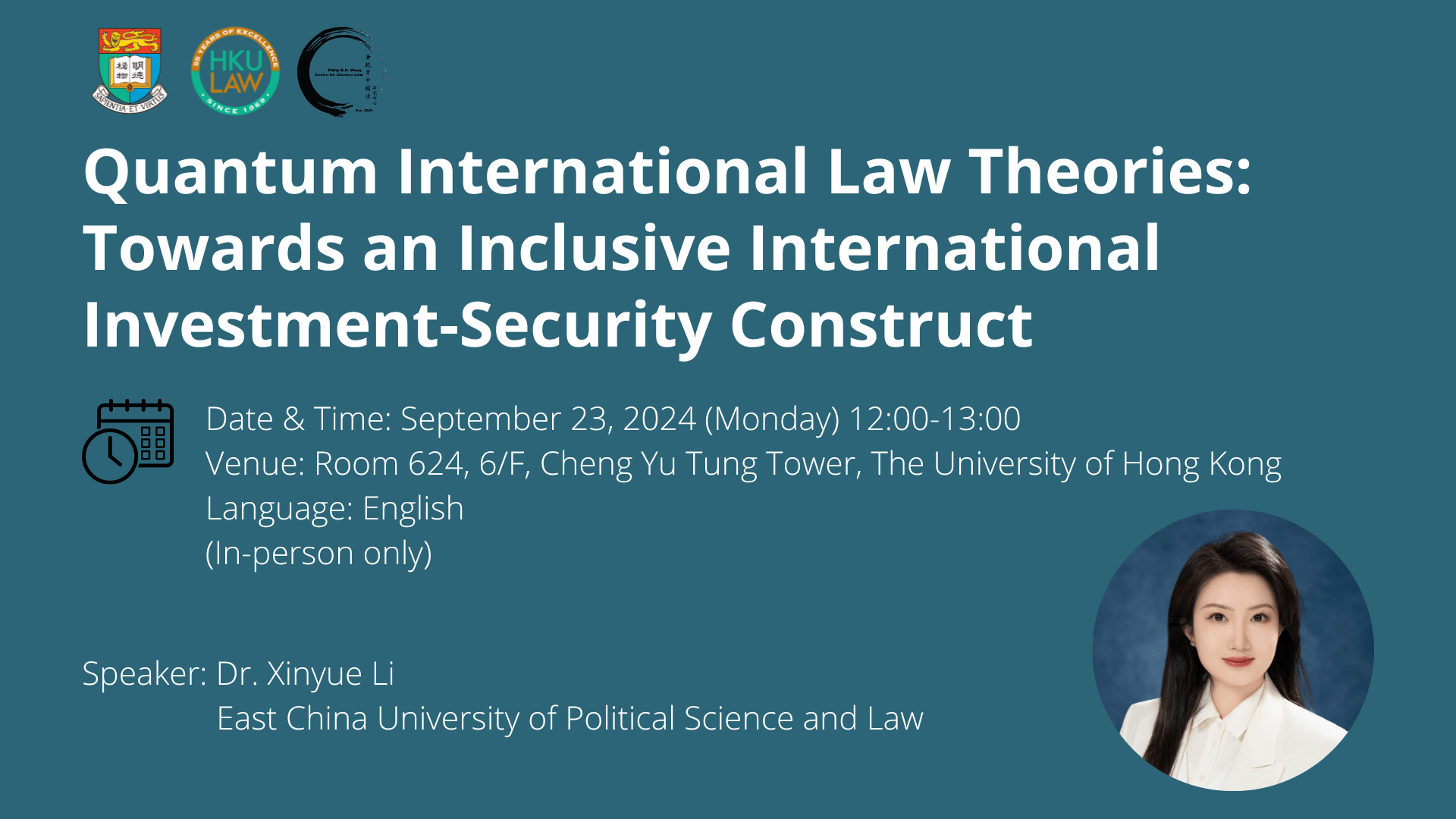
Quantum International Law Theories: Towards an Inclusive International Investment-Security Construct
Date & Time: September 23, 2024 (Monday) 12:00-13:00
Venue: Room 624, 6/F, Cheng Yu Tung Tower, The University of Hong Kong
Language: English
(In-person event)
Abstract:
In recent years, there have been significant changes in the foreign investment landscape that have affected investors and States around the world. These transitions can be broadly categorised into two hypotheses: international to domestic in the liberalisation continuum and legalisation to politicisation in the geoeconomic order. While these hypotheses seek to capture the changing investment-security dynamics, none satisfactorily comprehend classical irreconciliation. In response, this study proposes a novel trinity of quantum international law theories that extrapolate quantum entanglement, measurement, and holism theories through analogy, ontology, and post-critique approaches to inspire multidisciplinary insights. It outlines the justifications for using quantum theories in international law-making and policymaking, the extrapolated fundamentals, and the trinity application approaches by testing two variations of the trinity. The study results help move beyond unproductive debates on ‘economics versus security’ and offer international lawmakers and policymakers a new thinking model that can be applied to ‘everything’ multidisciplinary.
Speaker:
Dr. Xinyue Li is an Associate Researcher at School of International Law and a founding member of Institution for International Law and Policy of Global Commons Governance, East China University of Political Science and Law (ECUPL), Shanghai, China. She is also a part-time Legal Advisor of International Operation at Shanghai I-Land Law Offices. Dr Li is selected for 2023 Chinese National Overseas Talent Programme, 2023 Shanghai Magnolia Talent Programme Youth Project, and 2024 Shanghai Higher Education Young Teacher Cultivation Funding Scheme. Her current research interests include advanced multidisciplinary theories of international law (i.e., quantum international law), emerging economic-security irreconciliation, and multidisciplinary legal issues of science and technology innovations. She teaches Science, Technology & Law, Public International Law, International Human Rights Law, and International Law Moot Court Competition. She is the module director of International Commercial Arbitration Case Study, which is part of the International Arbitration Law Master’s Degree Training Program of the Ministry of Education and the Ministry of Justice, jointly built by Shanghai International Arbitration Center, East China University of Political Science and Law, Fudan University, and Shanghai University of Political Science and Law. She serves as the Coach of ICRC International Humanitarian Law Moot Court Competition.
Chair:
Professor Yun Zhao, Henry Cheng Professor in International Law, is the Associate Dean (Mainland Affairs) of Faculty of Law at The University of Hong Kong.
To watch recordings of past CCL events, please subscribe to our newly launched YouTube channel: The Centre for Chinese Law – YouTube. To keep up with our activities, follow us on Twitter https://twitter.com/CCLHKU
Philip K.H. Wong Centre for Chinese Law at The University of Hong Kong promotes legal scholarship with the aim to develop a deeper understanding of China and facilitate dialogue between East and West. For more information, visit: Philip K.H. Wong Centre for Chinese Law

